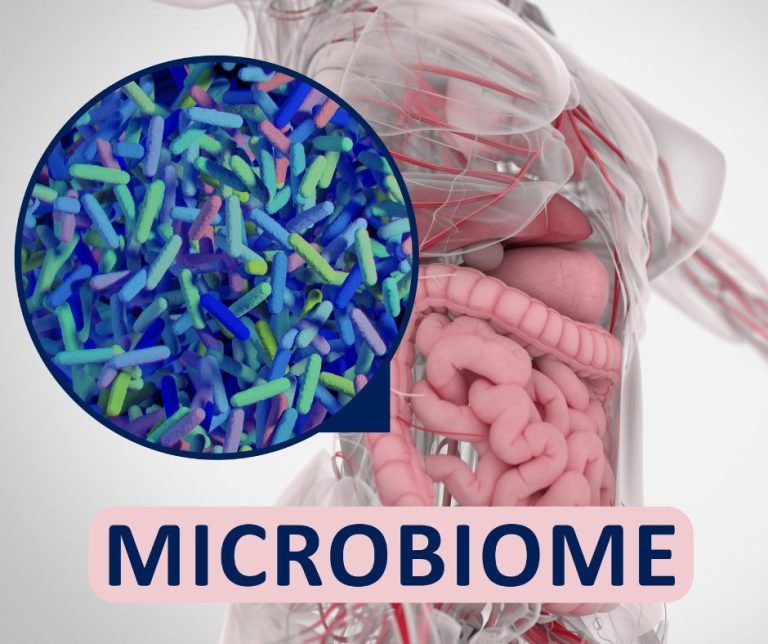
Poop & Weight Loss/Gain: How Your Bowel Health Impacts Your Scale
Your scale isn’t measuring fat — it’s measuring what your gut hasn’t let go of. Hidden stool retention, slow motility, and gut bacteria can quietly

Home » The Role of Exercise in Supporting Gut Health: A Comprehensive Guide
Good gut health is essential for overall well-being, and while a healthy diet is often emphasized, the role of exercise in supporting gut health is often overlooked. In this blog post, we will explore the crucial role of exercise in maintaining a healthy gut and provide practical tips on how to incorporate physical activity into your daily routine.
The gut microbiota refers to the trillions of microorganisms residing in our digestive system. These microorganisms play a vital role in various bodily functions, including digestion, immune system regulation, and nutrient absorption. When the balance of gut bacteria is disrupted, it can lead to digestive issues and other health problems. Regular exercise has been shown to positively impact the diversity and composition of the gut microbiota, promoting a healthy gut environment.

Exercise has direct effects on the digestive system, including improving gut motility and aiding digestion. Physical activity helps to stimulate the muscles in the digestive tract, enhancing the movement of food through the intestines and reducing the risk of constipation. Additionally, exercise has been found to reduce inflammation in the gut, which is often associated with conditions like inflammatory bowel disease (IBD) and irritable bowel syndrome (IBS). By reducing inflammation, exercise can support a healthy gut lining and improve overall digestive function.

Chronic inflammation in the gut can contribute to various digestive disorders. Regular exercise has been shown to have anti-inflammatory effects, which can help alleviate symptoms and promote gut health. Exercise triggers the release of anti-inflammatory compounds and reduces the production of pro-inflammatory molecules, leading to a balanced immune response in the gut. Incorporating both aerobic exercises and strength training into your routine can help combat inflammation and support a healthy gut environment.
Stress has a significant impact on gut health. When we are stressed, our bodies produce stress hormones that can affect digestion and disrupt the balance of gut bacteria. Exercise is an effective stress management tool, as it helps to reduce the levels of stress hormones in the body. Engaging in regular physical activity, such as brisk walking, cycling, or yoga, can promote relaxation and alleviate stress, benefiting both the mind and the gut.

Different types of exercises offer unique benefits for gut health. Aerobic exercises, such as running, swimming, or dancing, help to increase heart rate and promote blood flow to the digestive system. This enhanced blood circulation supports the delivery of oxygen and nutrients to the gut, promoting healthy digestion. Strength training exercises, like weightlifting or resistance training, can improve muscle tone and strength, including the muscles in the digestive tract, thereby enhancing gut motility. Additionally, incorporating mind-body exercises like yoga or tai chi can help reduce stress levels, support relaxation, and improve digestion.
While exercise plays a significant role in supporting gut health, it is important to adopt a holistic approach. A balanced diet rich in fiber, fruits, vegetables, and probiotic-rich foods is crucial for maintaining a healthy gut. Proper hydration is also essential for digestion and overall gut function. Drinking an adequate amount of water helps to soften the stool, prevent constipation, and support the movement of waste through the intestines. Additionally, quality sleep and stress management techniques, such as meditation or deep breathing exercises, contribute to a healthy gut environment.
Incorporating exercise into your daily routine doesn’t have to be complicated. Start by setting achievable goals and gradually increasing the duration and intensity of your workouts. Find activities you enjoy, whether it’s joining a sports team, taking dance classes, or going for hikes. Consider finding an exercise buddy or joining a fitness class to stay motivated and accountable. If time is a constraint, try incorporating short bursts of physical activity throughout the day, such as taking the stairs instead of the elevator or going for a brisk walk during lunch breaks.
Exercise plays a crucial role in supporting gut health by improving gut motility, reducing inflammation, and alleviating stress. By incorporating aerobic exercises, strength training, and mind-body activities into your routine, you can enhance digestion, promote a healthy gut microbiota, and reduce the risk of digestive disorders. Remember to combine exercise with a balanced diet, proper hydration, quality sleep, and stress management techniques for optimal gut health. Prioritize your gut health by making physical activity a regular part of your lifestyle, and reap the benefits of a healthier digestive system and overall well-being.

Your scale isn’t measuring fat — it’s measuring what your gut hasn’t let go of. Hidden stool retention, slow motility, and gut bacteria can quietly

Your poop is a real-time report card on your gut health—and most people are ignoring it. From color changes to weird shapes to the clues

Wheat isn’t the villain—it’s the kind of wheat that’s wrecking your gut. From ancient grains to modern hybrids, discover how today’s wheat triggers inflammation, worsens

Your gut isn’t just digesting food—it’s controlling your hunger, energy, and even how fast you burn fat. Inside you is a powerful hormone called GLP-1,

Happy Poops.
What about your friends?